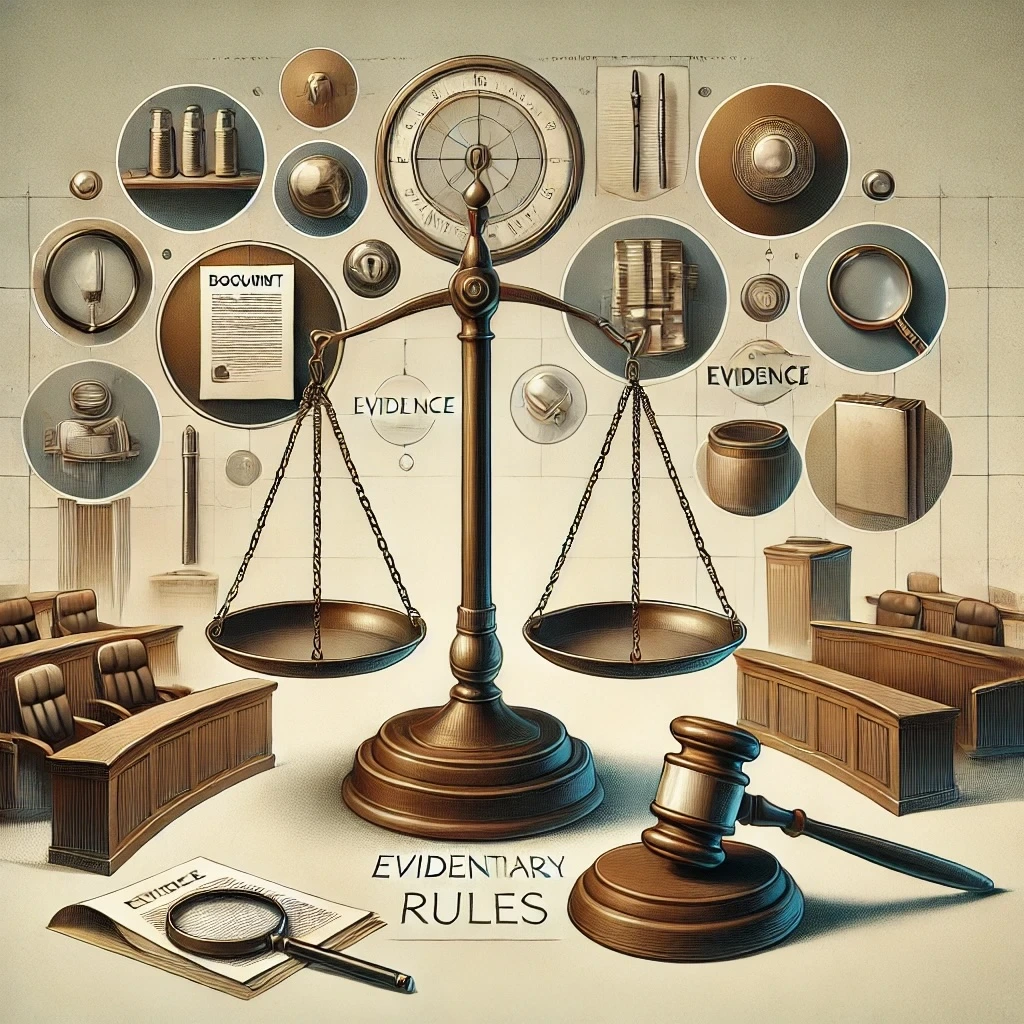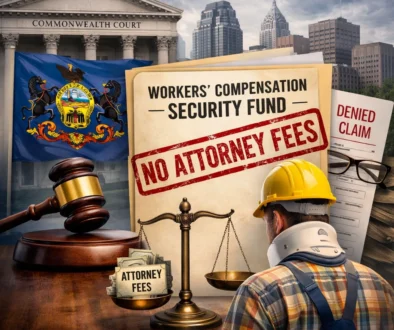Evidentiary Principles In PA Workers’ Comp
Understanding the rules of evidence can greatly impact the success of your Pennsylvania workers’ compensation claim. These principles help injured workers and their lawyers in the workers’ compensation system to secure the benefits they deserve.

What Applies?
Rules Of Evidence
The rules of evidence in Pennsylvania workers’ comp cases differ from those in traditional courts. Workers’ compensation claims follow more relaxed rules. Section 422(a) of the Pennsylvania Workers’ Compensation Act allows Workers’ Compensation Judges (WCJs) more discretion in admitting evidence. They may admit evidence that other courts would not permit.
All findings must still rely on sufficient and competent evidence. This standard demands reliable, relevant, and factual evidence, despite the more lenient technical rules. A workers’ compensation attorney will typically follow the traditional rules of evidence. This helps to strengthen the case and minimize the risk of challenges on appeals.
Why The Relaxed Rules Of Evidence?
The relaxed rules create a fairer, more accessible process for injured workers. By easing these rules, the system allows for a broader range of evidence. This helps injured workers and their attorneys build a strong case to secure workers’ compensation benefits.
Even with these relaxed rules, lawyers will often prepare evidence in line with the Pennsylvania Rules of Evidence. This includes relevant, material, and properly authenticated evidence. They use this approach to help protect the case from disputes by the insurance company or opposing counsel.
The Walker Rule
The Walker Rule comes from the case Walker v. Unemployment Compensation Board of Review. This vital principle in PA workers’ comp law dictates how to handle hearsay evidence. The Walker Rule applies to administrative proceedings like workers’ compensation hearings, where WCJs assess the evidence presented.
According To The Walker Rule
- If properly objected to, hearsay evidence cannot serve as the sole basis for a finding of fact by the WCJ.
- If admitted without objection, hearsay evidence retains probative value but requires corroboration by other competent evidence. A WCJ cannot base a finding solely on hearsay unless supported by other reliable information.

Role Of Hearsay In Workers’ Compensation Cases
In PA, the hearsay rule also applies in workers’ comp cases. Hearsay typically refers to out-of-court statements offered to prove the truth of the matter asserted.
Workers’ comp proceedings often discuss hearsay in the context of medical treatment reports and records. These records help to establish the nature and extent of a work injury. But, if the opposing party objects to their admissibility, other evidence, such as direct testimony or additional medical evaluations, must corroborate them.
When hearsay evidence faces no objection, the WCJ may consider it. But it still requires support from other competent evidence to justify a finding. An experienced workers’ compensation lawyer will recognize when to challenge hearsay. They will also know how to ensure that evidence, like medical reports, meets the standards required for admissibility.
Admissibility Of Surveillance Footage In Workers’ Comp
Surveillance footage can play a large role in PA workers’ comp claims. Employers and insurance companies may use private investigators to gather video footage of an injured worker’s daily activities. They hope to show that the worker’s physical abilities contradict their claimed injury. This can challenge the worker’s credibility and eligibility for benefits.
Surveillance Footage Musts
- It requires proper authentication. The individual who recorded the footage or someone with knowledge of the recording must verify its accuracy.
- The footage must clearly identify the worker and provide a fair and accurate representation of the events shown.
Can Employers Use Surveillance To Deny Benefits?
Surveillance footage, even when authenticated, cannot automatically result in a termination of benefits. The footage must show that the injured worker’s daily activities contradict their claimed work injury.
Video footage should not serve as the sole piece of evidence. It needs corroborating evidence. For example, medical testimony or expert evaluations.
Tips For Injured Workers
Document Everything
Keep detailed records of all events, medical treatment, and any interactions with employers or the insurance company. These records will help when building your case.
Look Out For Cameras
Know that insurance companies may use private investigators to capture video surveillance. They could use any of this footage in your claim.
Hire A Workers’ Comp Lawyer
An experienced lawyer will know how to navigate the rules of evidence in PA workers’ comp. This ensures admissibility and relevance for all presented evidence. They will also know when to challenge inadmissible or uncorroborated evidence, such as hearsay or improperly authenticated footage.
The Importance Of Cross-Examination
Cross-examination plays a huge role in workers’ comp cases, especially with hearsay evidence or surveillance footage. Cross-examining witnesses or experts who provide evidence helps to verify the accuracy and challenge the validity. A skilled workers’ comp lawyer will strengthen the injured worker’s case and protects their right to benefits.
Wrap Up
Anyone involved in a PA workers’ comp case must know the rules of evidence. These principles empower injured workers and help to build strong cases.
If you’re dealing with a work injury, you need an seasoned workers’ comp lawyer by your side. We will help gather the right evidence, challenge inadmissible materials, and protect your rights. For a free case evaluation, give us a call 24/7 at (215) 609-4183. We can help you get all the benefits you deserve.




